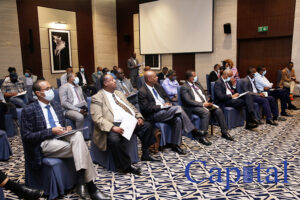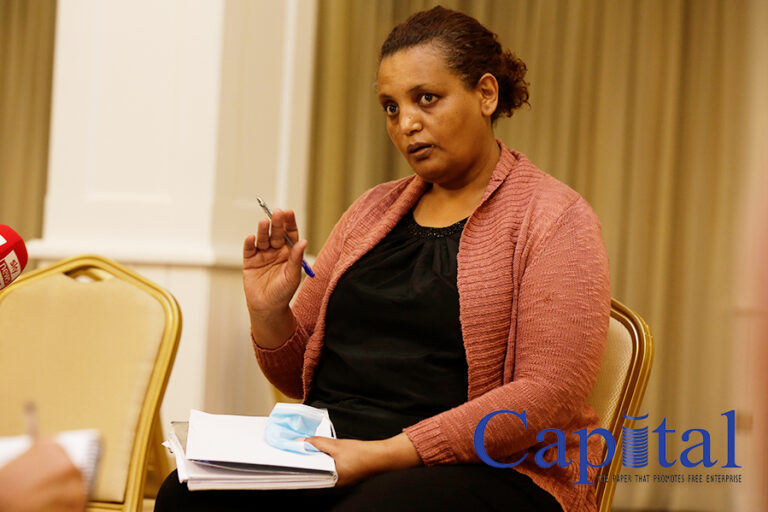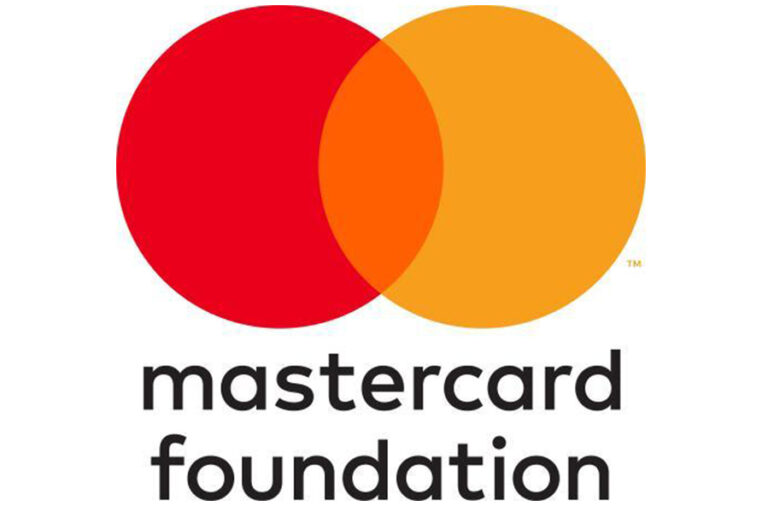Berhan bank aims to stretch its capital to 8-10 billion birr in the coming five years.
In accordance with the National Bank of Ethiopia regulation which states that with in the transition period of five years the existing commercial banks ought to boost their capital to five billion birr; Berhan plans to pump its capital to 8-10 billion.
According to Abreham Alaro, president of the bank, currently the initial capital of Berhan bank stands at 3 billion birr. To this end the president stated that the bank will work to increase its capital by engaging in various new services.
On Wednesday June 9, 2021 the bank signed an agreement with the Ministry of Revenue to start giving Electronic tax /E-tax/ service.
As Abreham stated, the agreement will help to increase digital financial service by improving the service income collection of the ministry. “The bank has been working to test the system by fulfilling all the pre requirements where all the effort to connect the bank system with the ministry has been completed. Customers who both live locally and broad can pay their tax using all the digital options that Berhan offers,” the president noted.
Moreover as the president told capital, the bank is working to connect its system with Ethio telecom to work on Telebirr. Berhan with in the coming few days will link itself with Telebirr services enabling customers to transfer money from their Berhan account to Telebirr.
In addition to Berhan, The Ministry of Revenue has also signed an agreement with three private banks, including the Commercial Bank of Ethiopia, to make the tax system more efficient and cost-effective.
State Minister for Legal Affairs of the Ministry of Revenue, Zemede Tefera, said the agreement is a good one as it will benefit taxpayers from all parts of Ethiopia except Addis Ababa.
The Ministry has been working with the Commercial Bank of Ethiopia (CBE) to integrate the electronic tax system into the system.
The Director General of the Information Network Security Agency, Shumete Gizaw, has said that taxpayers have a responsibility to ensure the security of their information wherever they pay their taxes.
Berhan Bank aims to surpass capital threshold
NEBE’s stance on election and ballot errors
The National Electoral Board of Ethiopia (NEBE) takes administrative measures against the employees responsible for the error in the ballot papers, 27 constituencies are excluded from the June 21, 2021 election as result of error in the ballot papers.
The 6th general election will be held on June 21, 2021 in accordance with the new schedule the election board announced two weeks ago. The election which is expected to be held in less than a week beside various insecurity and logistic distresses, error in the ballot papers threatened the twice delayed national polls.
According to the national board announcement on Thursday, it is to be recalled that the Board stated that there are problems with the 54 constituencies that were found to be in need of re-printing of ballot papers. Among these constituencies, the number of polling stations that have problems with voting is now 27. Accordingly, voting in these 27 State and House of Representatives constituencies will be held on September 6, 2021.
The board mentioned that some of the errors were human made and done intentionally and some happened in the process work related errors.
“The board has taken administrative measures on its employees which is up to prohibition from work in order to better determine who is responsible for the error in the ballot papers by mishandling data due to their neglect, ” said Birtukan Mideksa, Chairwoman of the board on a press briefing given on Thursday, June 10, 2021. The board will conduct a vetting process on the ballot paper and will announce the results explained Birtukan. Currently, the number of employees the board has taken the measures on is still undefined.
The new delay was needed because of logistical woes related to tasks like training electoral staff and printing and distributing ballot papers. The logistical challenges promise to be daunting even with the delay. Likewise, staff shortages have been hindering the election. Places where voter registration has not started, due to security concerns, locations where voter registration has begun and been terminated, areas where complaints have been lodged during the voter registration process or where the board has decided to investigate a significant irregularity in the voter registration process, are notable hurdles faced ahead of the elections.
To this end, there have been 40 constituencies where the NEBE previously said elections cannot take place due to security reasons and voters’ registration irregularities.
The board announced that these constituencies affected by ballot paper defections will take place on September 6, 2021 alongside with the 40 constituencies. Whereas the second round of election will be held on September 6, 2021, total of 81 constituencies will hold their election on the second round election and expected voters in those areas will be able to cast ballots before a new parliamentary session begins in early October.
“We need to hire more than 100,000 additional staff and train them on voting day procedures and tabulating results. Staff shortages have been especially apparent so far in Afar and Somali regions, where registration started late,” explained the NEBE chair.
According to the election board there are 673 constituencies over the country, and the 6th general election will be held at all of the constituencies in Addis Ababa, Diredawa, Gambela region and Sidama region.
According to the new plan of the board, Somali region is completely excluded from the June 21, 2021 election, according to the board even if voter registration has been completed in 14 constituencies it has been suspended due widespread procedural problem with voter registration to an investigation in the region and it is one of the regions most affected by the re-printing of ballot papers mainly because of misinformation.
As Birtukan said, the voter and candidate registration in the region has been misconceived and to this end the board is investigating and also taking some administrative measures. Prior to that, it will finalize and publicize issues related to voter registration.
The referendum in Southwest Ethiopia was scheduled to take place on June 21 with the general election, but due to security concerns, some constituencies will not be able to cast their ballots due to security concerns so the election will be held on September 6, 2021.
According to the board, Voter registration has been completed in the verification process, bringing the total number of registered voters to 37.4 million. This figure does not include the 14 constituencies where voter registration has been suspended due to the investigation in the Somali region, and also the number of voters in Harari region.
Besides, as the board announced, additional illegal 79 polling stations have been opened without the approval of the board , 2 polling stations in Addis Ababa, 6 with the Dire Dawa City Administration, and 71 polling stations at South Nations Nationalities and Peoples Region without the Board’s approval, which is illegal. Also the Board has announced that it will make a decision on the voting process before the polling day regarding the polling stations.
In Benishangul-Gumuz State, two constituencies (Metekel, Kamash) will not be held on June 21, 2021.
In the Oromia Region, as mentioned earlier, the seven constituencies (Begi, Monday Market, Ayana, Galilee, Alibo, Gidami, Kombolcha) will not be held on June 21, 2021.
Amhara State the Board has decided to hold a voting process on June 21, 2021 in one of the eight constituencies mentioned above. This was confirmed by a confirmation from the regional government that citizens in the vicinity of the five polling stations where voter registration had been disrupted were registered at other polling stations.
In addition to the four constituencies in the Southern Nations, Nationalities and People’s Region (SNNPR), the budget will not be voted on by the Constituent Assembly on June 21; In addition, due to security concerns in Gurafarda, the Sheko Special Constituency and Tepi Constituency elections will not be held on June 21. As a result, the SNNPR will not vote on seven constituencies on the day.
The board has said it has developed its transportation system with the cooperation of federal institutions, state governments and others based on voter registration experience using the full power of the Board in transporting ballot papers.
So far the board has not announced any of its plans about the 6th national election in Tigray region.
Mastercard foundation to deploy $1.3 billion in partnership with Africa CDC to save lives and livelihoods
The Mastercard Foundation has announced that it will deploy USD 1.3 billion over the next three years in partnership with the Africa Centres for Disease Control and Prevention (Africa CDC) to save the lives and livelihoods of millions of people in Africa and hasten the economic recovery of the continent.
The Saving Lives and Livelihoods initiative will acquire vaccines for at least 50 million people, support the delivery of vaccinations to millions more across the continent, lay the groundwork for vaccine manufacturing in Africa through a focus on human capital development, and strengthen the Africa CDC.
“Ensuring equitable access and delivery of vaccines across Africa is urgent. This initiative is about valuing all lives and accelerating the economic recovery of the continent,” said Reeta Roy, President and CEO of the Mastercard Foundation. “In the process, this initiative will catalyze work opportunities in the health sector and beyond as part of our Young Africa Works strategy,” she added.
The African Union’s goal as set out in the African COVID-19 Vaccine Development and Access Strategy is to vaccinate at least 60 percent of its population – approximately 750 million people or the entire adult population of the continent – by the end of 2022. To date, less than two percent of Africans have received at least one vaccine dose.
The new partnership builds on the efforts of the COVID-19 Vaccines Global Access facility (COVAX), the COVID-19 African Vaccine Acquisition Task Team (AVATT), and the global community to expand access to vaccines across Africa. The number of vaccines available to Africa represents a small portion of the global supply and the financial costs to purchase, deliver, and administer vaccines remain significant. The Africa CDC is calling on governments, global funders, the private sector, and others to help meet this goal.
“Ensuring inclusivity in vaccine access, and building Africa’s capacity to manufacture its own vaccines, is not just good for the continent, it’s the only sustainable path out of the pandemic and into a health-secure future,” said Dr. John Nkengasong, Director of the Africa CDC. “This partnership with the Mastercard Foundation is a bold step towards establishing a New Public Health Order for Africa, and we welcome other actors to join this historic journey.”
In 2020, Africa faced its first economic recession in 25 years due to the pandemic. The African Development Bank has warned that COVID-19 could reverse hard-won gains in poverty reduction over the past two decades and drive 39 million people into extreme poverty in 2021. Widespread vaccination is recognized as being critical to the economic recovery of African countries.
The initiative builds on an earlier collaboration between the Mastercard Foundation and the Africa CDC to expand access to testing kits and enhance surveillance capacity in Africa. Through the Foundation’s support, the Africa CDC’s Partnership to Accelerate COVID-19 Testing (PACT) deployed nearly two million COVID-19 tests and more than 12,000 trained health care workers and rapid responders across Africa. In total, the PACT has enabled over 47 million COVID-19 tests across the continent.
The Mastercard Foundation is a Canadian foundation and one of the largest in the world with more than $39 billion in assets.
Access to housing in Addis to improve
Addis Ababa Housing Development and Administration Bureau and Gojo Bridge Housing Trading plc signed a memorandum of understanding (MoU) to work together on the access to housing in the capital city.
Gojo Bridge Housing has introduced an alternative housing scheme that the dwellers shall access at reasonable rates with the support of financial firms and volunteers, who agreed to share their plots for the construction of high rise condos.
The city administration recently called residents, who registered on the housing scheme of 20/80 and 40/60 about 8 years ago, to form cooperatives and then to build their houses on the plot that the city administration shall facilitate in the city. However, the access to available space in the city is a challenge on meeting the new scheme that the city administration commenced; while the model of Gojo shall look forward to ease the issue since it has already enabled to amass huge plots in the town including at the downtown from residents under sharing plots for housing instrument.
administration commenced; while the model of Gojo shall look forward to ease the issue since it has already enabled to amass huge plots in the town including at the downtown from residents under sharing plots for housing instrument.
Under the document disbursed on the signing ceremony, the MoU targets to solve the possible challenges on the new city scheme.
On the Gojo’s scheme, dwellers will construct their own house on their direct involvement. Under its model Gojo has planned to construct 100,000 houses in the coming five years.
Based on the MoU, those who registered at the city administration to construct their houses via cooperatives shall access the plots of land that are available at Gojo sharing scheme.
The new deal is stated as a good opportunity for dwellers that are registered under City Administration cooperative scheme to trust the initiative of Gojo, who has also already commenced registration for those who have deposited the required amount in order to get their own house on the new arrangement.
Under the MoU, the Housing Development and Administration Bureau will look after the process and projects when they are commenced.
Based on the MoU, Gojo will file a project progress report every month for the city Bureau until houses are transferred to builders. It is also responsible to facilitate access to credit. It has already signed agreements with financial institutions including the state giant Commercial Bank of Ethiopia to work together on the alternative housing project.
On its part the Bureau is responsible to take corrective measures for any errors and follow up project progresses.
Despite hundreds of thousands registering to access condo houses under the city housing program, the actual performance and the demand could not be run as per the expectation. Due to that the government is now coming up with new housing policies and approaches to narrow the huge rift. Under the ten year plan, the government has expected to see one million houses in the capital and additional three million in the country that shall be built in different schemes including foreign real estate developers, cooperatives, public private partnership modalities, joint venture, and other new alternatives.
It was recalled that a couple weeks ago Capital reported that the Ministry of Urban Development and Construction (MoUDC) had revised the 16 years old housing policy and strategy to give more options for the private sector involvement on the housing scheme.
The amended strategy for affordable housing schemes that has been sent to the Council of Minister for ratification has expanded the alternatives to 12 from the previous 8 housing schemes.






